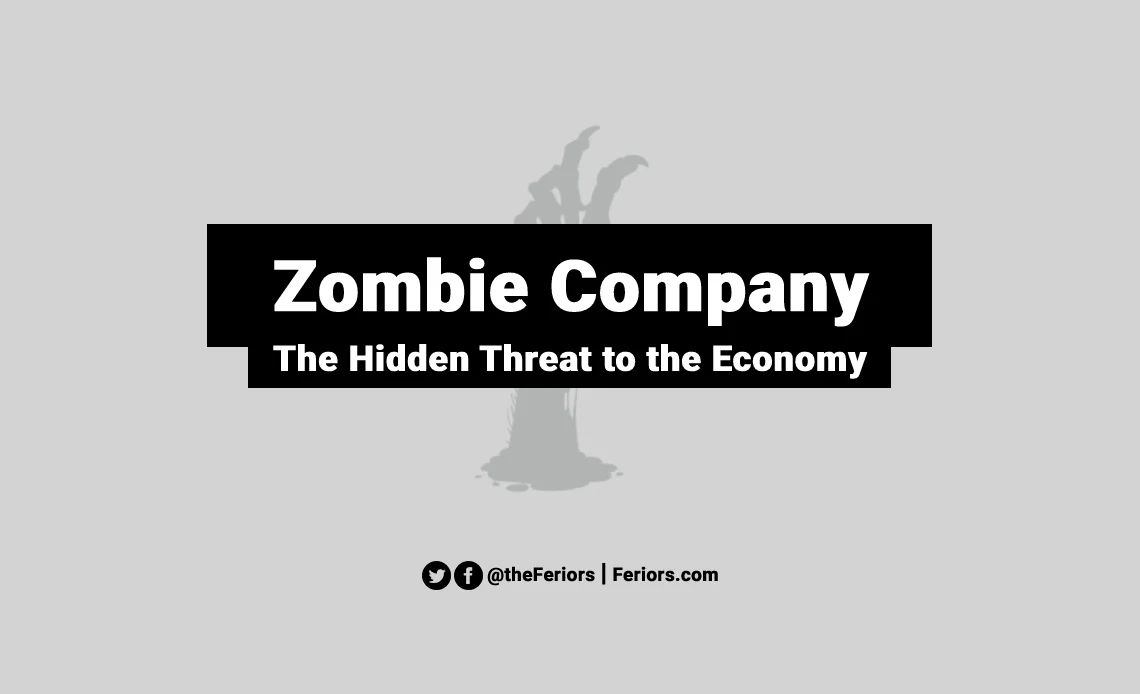What is Zombie Company?
A Zombie Company is a term used to describe a business that is no longer able to generate enough revenue to cover its debt payments but still receives financial support from the government policy.
These zombie companies are often referred to as “zombies” because they are effectively “dead” in terms of their ability to generate profits, but continue to operate due to the support they receive.
Zombie Companies are often seen as a drag on the economy because they can prevent more efficient companies from entering the market and can lead to a misallocation of resources.
The Path to Become a Zombie Company?
Zombie company can happen for a variety of factors, but the common causes include:
Low-interest rates: When interest rates are low, it can be easier for companies to borrow money, which can lead to over-leveraging and increased risk of financial distress.
Economic downturns: During recessions or other economic downturns, companies may struggle to generate enough revenue to cover their debt payments, which can lead to the emergence of zombie.
Government policies: Government policies that provide support to struggling companies can also contribute to the emergence of zombies, as it can prevent these companies from going bankrupt and allows them to continue operating despite not being economically viable.
Creditor leniency: Creditors, such as banks, may be hesitant to pull the plug on struggling companies, as it can lead to large losses for them. Instead, they may choose to extend additional credit or provide other forms of support, which can help keep zombies afloat.
Lack of competition: In some cases, companies that would otherwise be considered zombies may be able to continue operating due to a lack of competition in their market.
What is the Zombie Company Problem?
The “Zombie Company Problem” refers to the negative economic impact that zombie companies can have on an economy. Because these companies are not economically viable, they can prevent more efficient companies from entering the market and can lead to a misallocation of resources such as financial resources.
Zombie companies can also make it more difficult for healthier companies to access the credit they need to grow, as lenders may be hesitant to lend to companies that are competing with zombies. This can lead to lower productivity, weaker economic growth and potentially hindering the recovery of the economy.
Additionally, zombie companies can also lead to increased financial risks for the economy, as they may be more likely to default on their debt and can require government bailouts.
Therefore, the zombie company problem can be seen as a symptom of deeper structural issues in the economy, such as low-interest rates, weak regulation, or ineffective bankruptcy laws.
Potential Outcomes for Zombies Companies?
There are a few potential outcomes for zombies companies:
Restructuring: In some cases, zombies companies may be able to restructure their operations and finances in order to become economically viable again. This can involve cutting costs, renegotiating debt, or finding new sources of revenue.
Merger or Acquisition: Zombies companies may be acquired by other stronger companies, which can provide the capital and management expertise needed to turn the company around.
Closure: Some zombies companies may ultimately be forced to close if they are unable to restructure or find a buyer.
Bankruptcy: Zombies companies that are unable to restructure or find a buyer may file for bankruptcy. This can be seen as a way to discharge their debt and start over again, or it could be seen as a way to liquidate the assets of the company and distribute them among the creditors.
Continued support: In some cases, zombies companies may continue to receive support from their creditors or the government policy, which can keep them operating despite their lack of economic viability. This can be seen as a problem if it hinders the entry of more efficient companies in the market or if it leads to a misallocation of resources.


